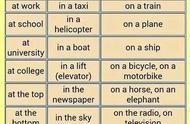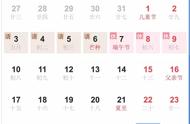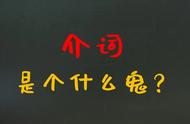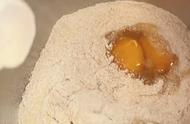
①on表示在具体某一天及具体某一天的上午、下午和晚上。
例 On mother's Day, we should send flowers to our mother. 母亲节,我们应该送花给我们的母亲。
On my arrival home,I found he had gone already.当我到家时,我发现他已经走了。
On Christmas Day(On May 4th), there will be a celebration.
He arrived at 10 o’clock on the night of the 5th.
in 2004, in March, in spring, in the morning, in the evening, etc
② 当early,late用于句首修饰介词短语时,尽管表示具体某一天的上午、下午、晚上,都要用in,泛指一般的上、下午,晚上也用in 。
例 Early in the morning of National Day,I got up to catch the first bus to the zoo. 国庆节一清早,我便起床去赶到动物园的第一班公共汽车。
My father begins work at 8:00 in the morning and stops work at 4:00 in the afternoon. 我父亲上午8点上班,下午4点下班。
③于将来时态表示“过一段时间后” 及表示“在……期间” 和“在某个季节,某年、某月” 都用in。
例 I hear he’ll be back in a month.我听说他将于一个月后回来。
In the course of the last lesson in French,little Franz was listening to the master very attentively.在那最后一堂法语课中,小弗朗兹非常用心地听着老师讲。
Xiao Ming was born in December of 2014. 小明生于2014年12月。
注意:after用于将来时间也指一段时间之后,但其后的时间是“一点”,而不是“一段”。
如:
He will arrive after two o’clock.
④当 morning,afternoon,evening有前位定语或后置定语限定时,就不用in而用on。
例 on a hot (summer) noon 在一个炎热(夏天)的中午
on Monday morning 在星期一上午
on the morning of March 8th在3月8日上午
⑤ 表示某时某刻及在work,Christmas等前用at。较短暂的一段时间。可指某个节日或被认为是一年中标志大事的日子。如:
He went home at Christmas (at New Year, at the Spring Festival, at night).
例 We get up at eight o’clock. 我们8点起床。
My father are busily at work all day. 我父亲整天忙于工作。
In western countries children get present from their parents at Christmas. 在西方国家,孩子们在圣诞节得到父亲给的礼物。
















